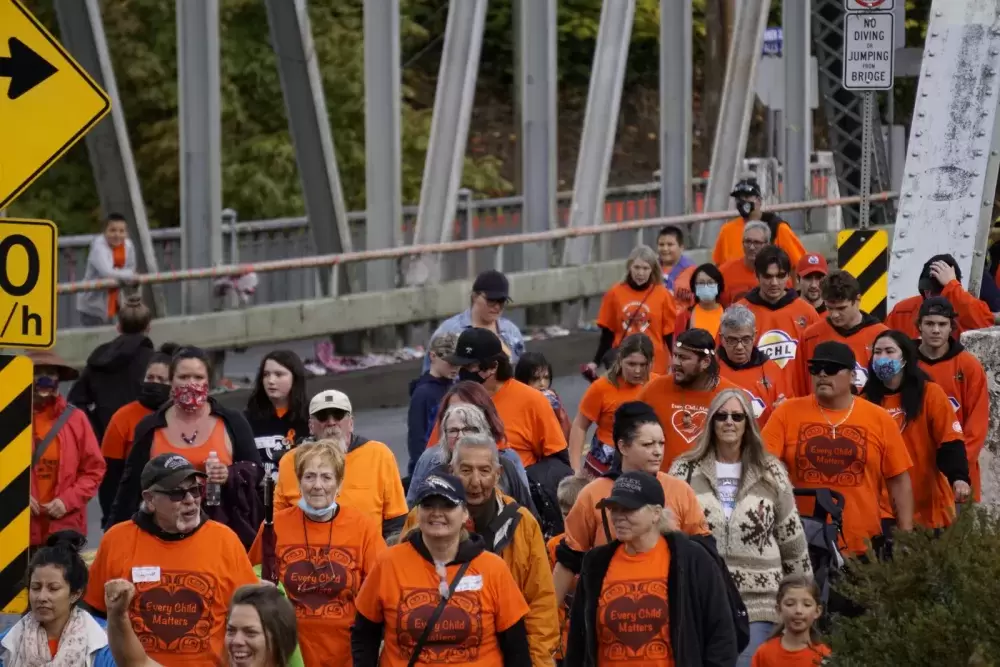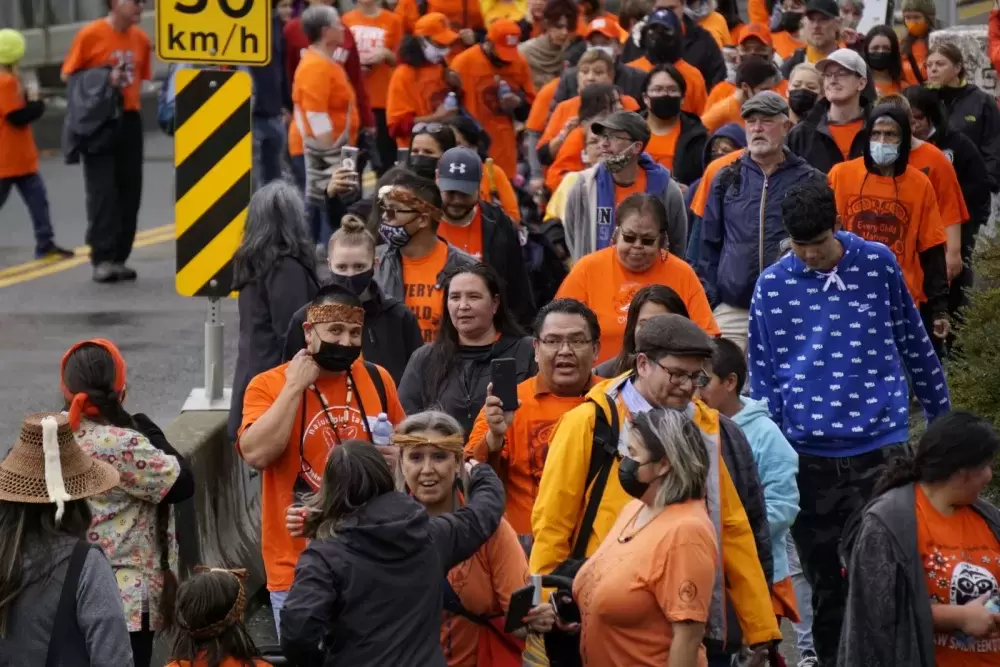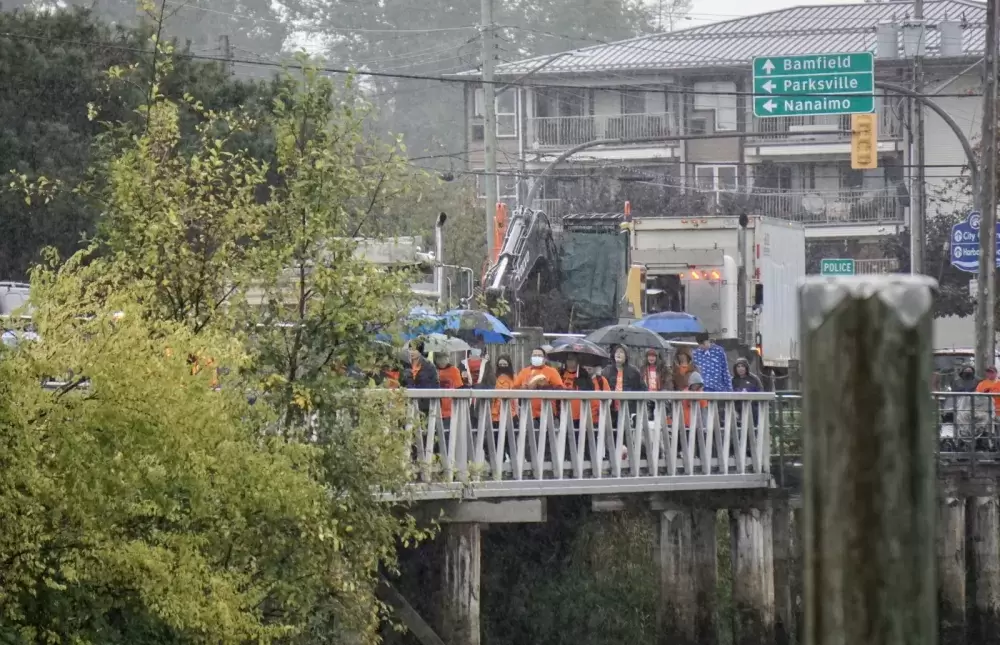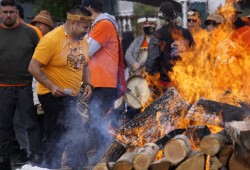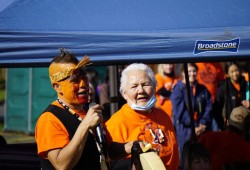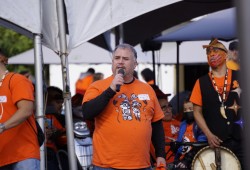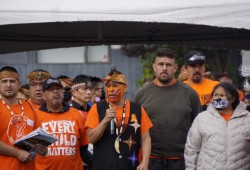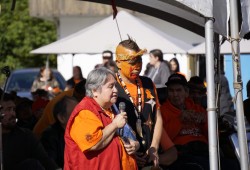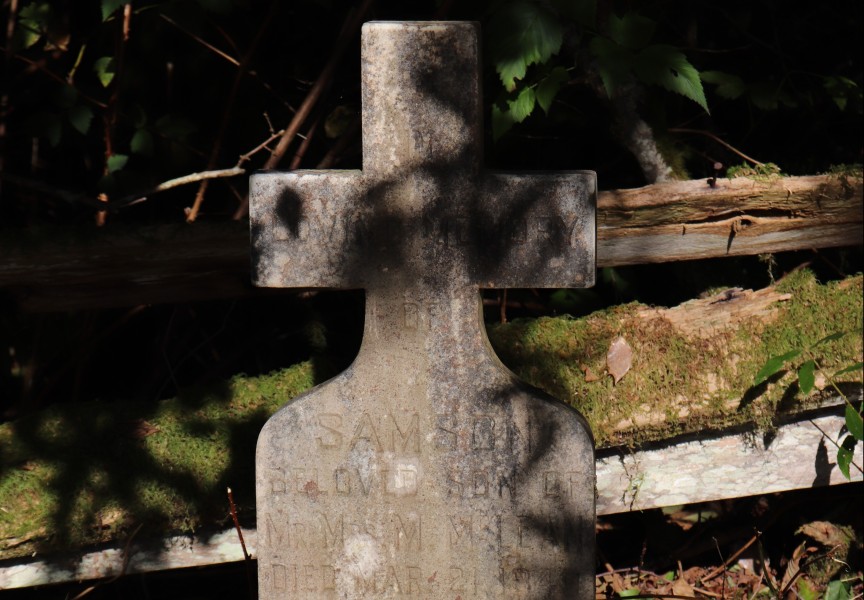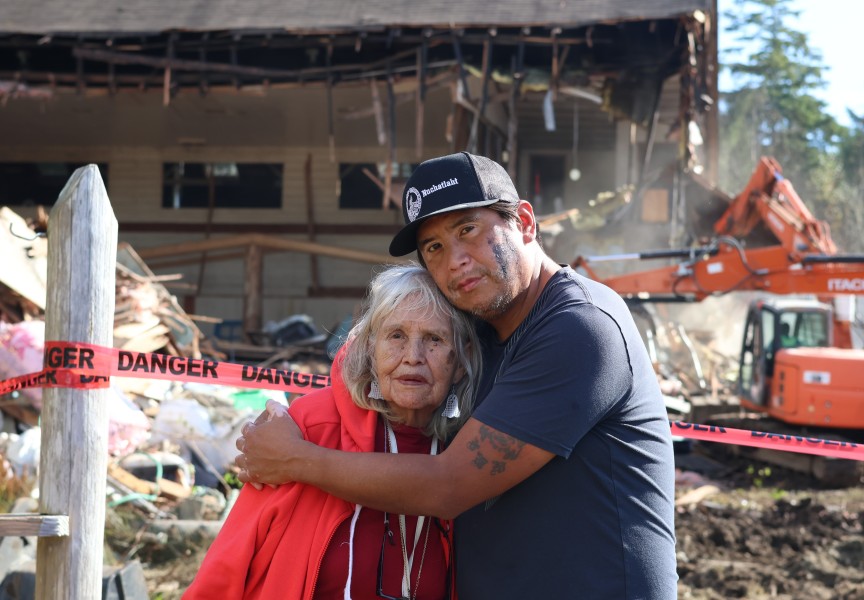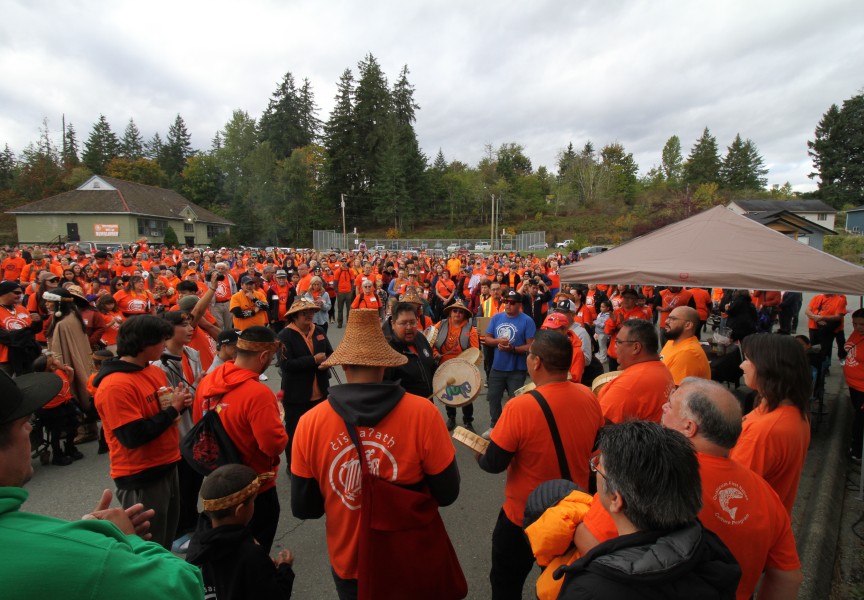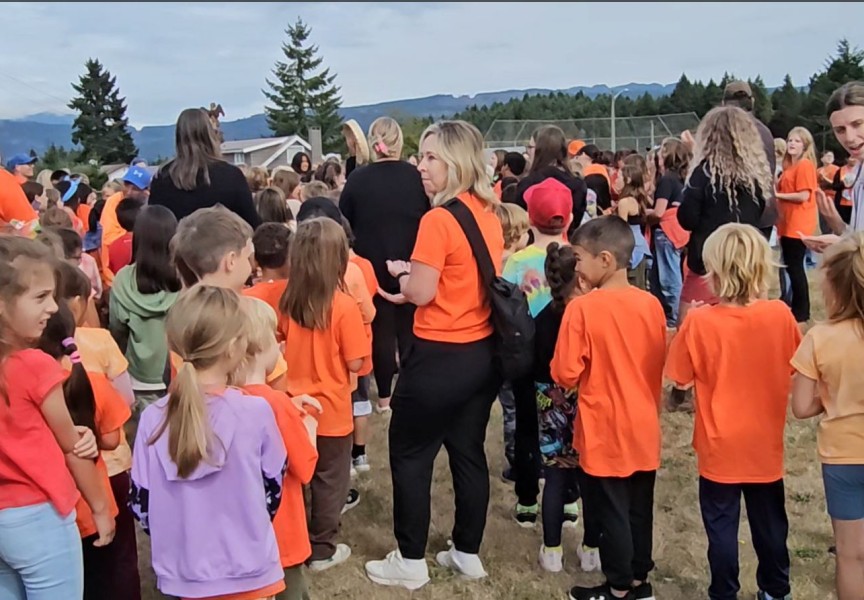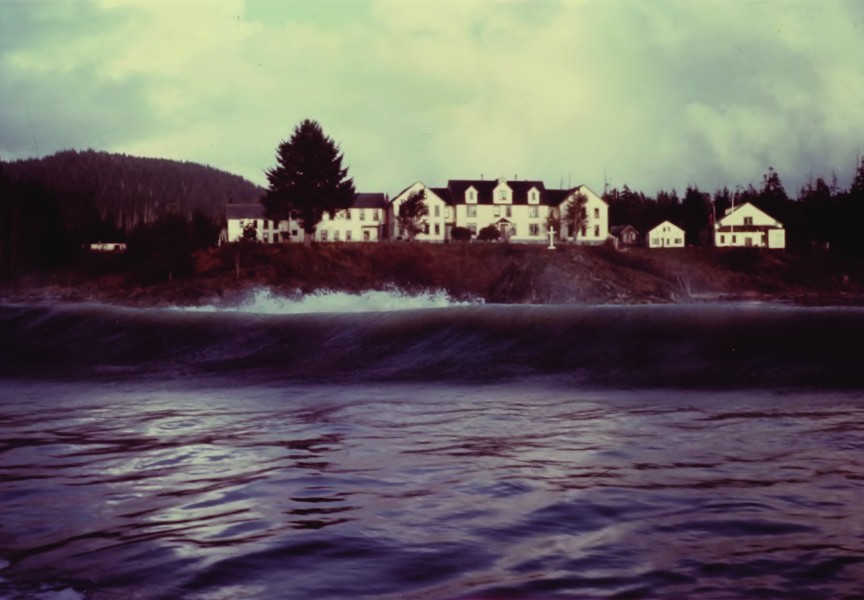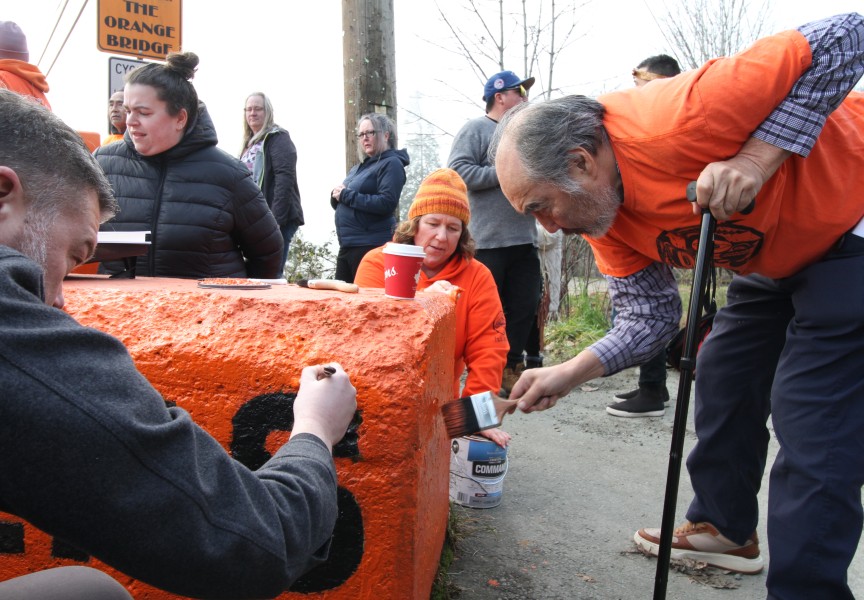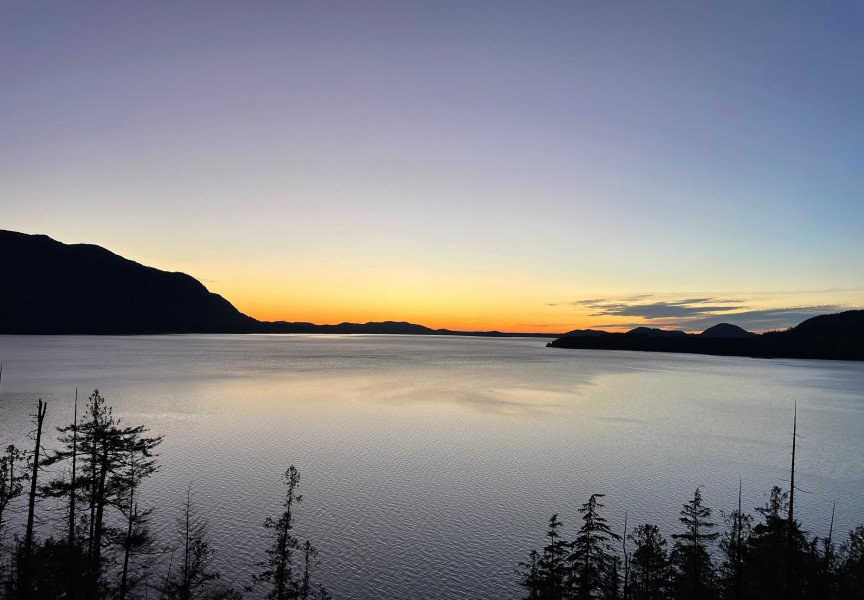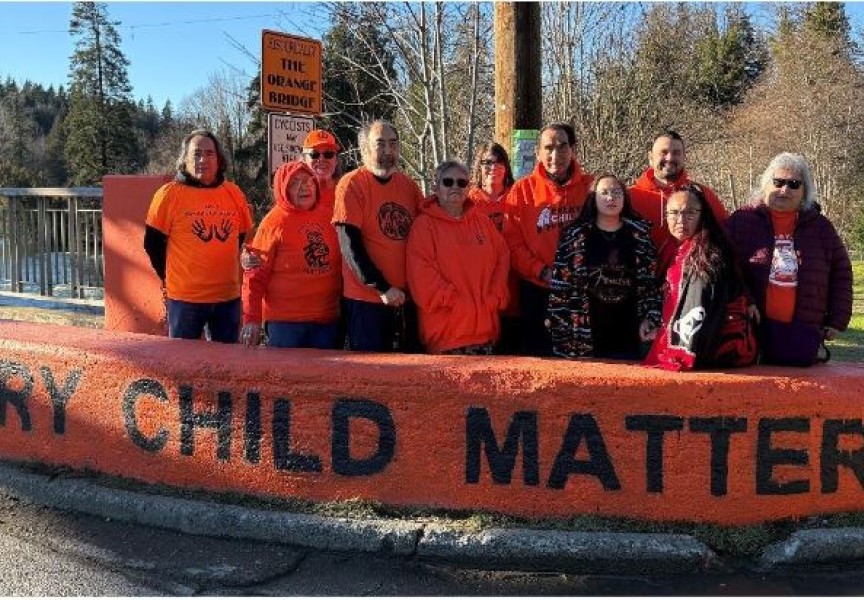A sea of orange shirts could be seen walking from Harbour Quay to Maht Mahs parking lot on Tseshaht territory today to honour both Orange Shirt Day and the first National Day for Truth and Reconciliation.
Orange Shirt Day, held on Sept. 30, is an Indigenous-led grassroots commemorative day that honours the children who survived residential schools and remembers those who did not. The National Day for Truth and Reconciliation honours the lost children and survivors of residential schools, their families and communities.
The rain didn’t stop the hundreds of Indigenous and non-Indigenous participants who began at the Harbour Quay and finished by walking down the middle of the Orange Bridge to Maht Mahs gym.
A large crowd gathered in the parking lot at Maht Mahs, around a fire, for a reconciliation ceremony.
“The turnout is great, especially for a rainy day. It’s an important day to people,” said Nuu-chah-nulth Tribal Council President Judith Sayers. “We’ve been celebrating Orange Shirt Day since 2013, so to me it’s still Orange Shirt Day even though we have a new name to add to it. I think especially in this year we need to come out and support one another, celebrate the (residential school) survivors and deal with the emotions of getting the children home from the unmarked graves and making an effort to put the message out there.”
Tseshaht First Nation’s Trevor Little spoke about the importance of Sept. 30, saying by standing together, people get stronger and the more the knowledge about what happened in residential schools comes out, the more teachers and leaders will be able to speak honestly about the past.
“We can accept honesty now. It was a hard thing to do in my life, to accept honesty on my upbringing,” Little said. “[Survivors] were hushed for so many years, so we stand together with this knowledge and we get stronger together…because we gather, because we sing. The knowledge has been there for years but now we embrace it.”
Martin Watts from Tsesashat said Sept. 30 is just a start in acknowledging and reconciling with the past.
“Generations and generations of pain for our people that is still happening today, substance abuses that are still happening,” Watts said. “We need to stop it, we need to help. The easiest way to stop it is to teach the young children that there’s a better way in life.”
Watts added that it’s important for people and especially youth to be proud of who they are. He said he’s grateful that there’s an understanding today by the local school districts about acknowledging the past and teaching Indigenous history to young people.
Gord Johns, MP for Courtenay-Alberni, told the crowd that Sept. 30 is an important day to honour residential school survivors, those who didn’t make it home, and their families.
“Today is the beginning of healing, it’s the beginning of making sure that reconciliation isn’t just a check box, that it’s everyday and it belongs in each and every one of us,” Johns said. “Today we acknowledge the horrific path. I want to say I’m sorry too for what’s happened…and we take responsibility for that by taking action.”
Johns urged everyone to read the Truth and Reconciliation calls to action and apply them in their daily lives.
“I will be going to Ottawa and asking them to create a timeline with respect of the United Nations Declaration on the Rights of Indigenous Peoples (UNDRIP) and implementing and using that as the framework as we walk forward together,” Johns said.
Ken Watts, elected chief councillor of the Tseshaht First Nation, said it’s not only important to have reconciliation with the Crown and provincial government, but to show reconciliation from nation to nation.
“As communities and nations we’re standing together like we haven’t done in a long time,” he said. “We talked about reconciling amongst ourselves, and also every Canadian playing a role. Each and every one of you play a role here today, whether it’s witnessing, whether it’s going home and educating your children about what happened, telling your neighbour or standing up when you hear something racist about our people.”
Watts added that Tseshaht never asked for the Alberni Indian Residential School to be built on their territory, but the nation now has to face the repercussions of it.
“We have to live with it now…but that’s why we’re coming here—to help people heal, to ask them to stand with us,” he said. “There’s some amazing survivors that I walked with today. The least we can do is walk a few kilometres in the rain when those people have been walking for all of us for years and carrying the weight of the school on their shoulders. It’s our responsibility to carry it on our shoulders now.”
Watts said the Tseshaht have begun fundraising to build a memorial that would have the names of all the survivors, and those who didn’t make it home, from the Alberni Indian Residential School. They’ve already raised $37,000 with help from several local businesses.
“McGill Engineering made a donation of $2,500, Paper Excellence donated $10,000 to our fund, Twin City Brewing donated over $1,400 and matching that was the realtor Dave Ralla,” Watts said, “Also matching that was Jays Lace it Up, they donated $1,500 and Cloud City donated $3,000 towards our fund.”
A cruise planned by the Alberni Drag Race Association also saw $7,000 in donations go towards the Tseshaht fund.
“Our plan is to create a memorial up here and have it covered under a gazebo so survivors and families can come up here any time of year and see their loved one’s names,” Watts said.

